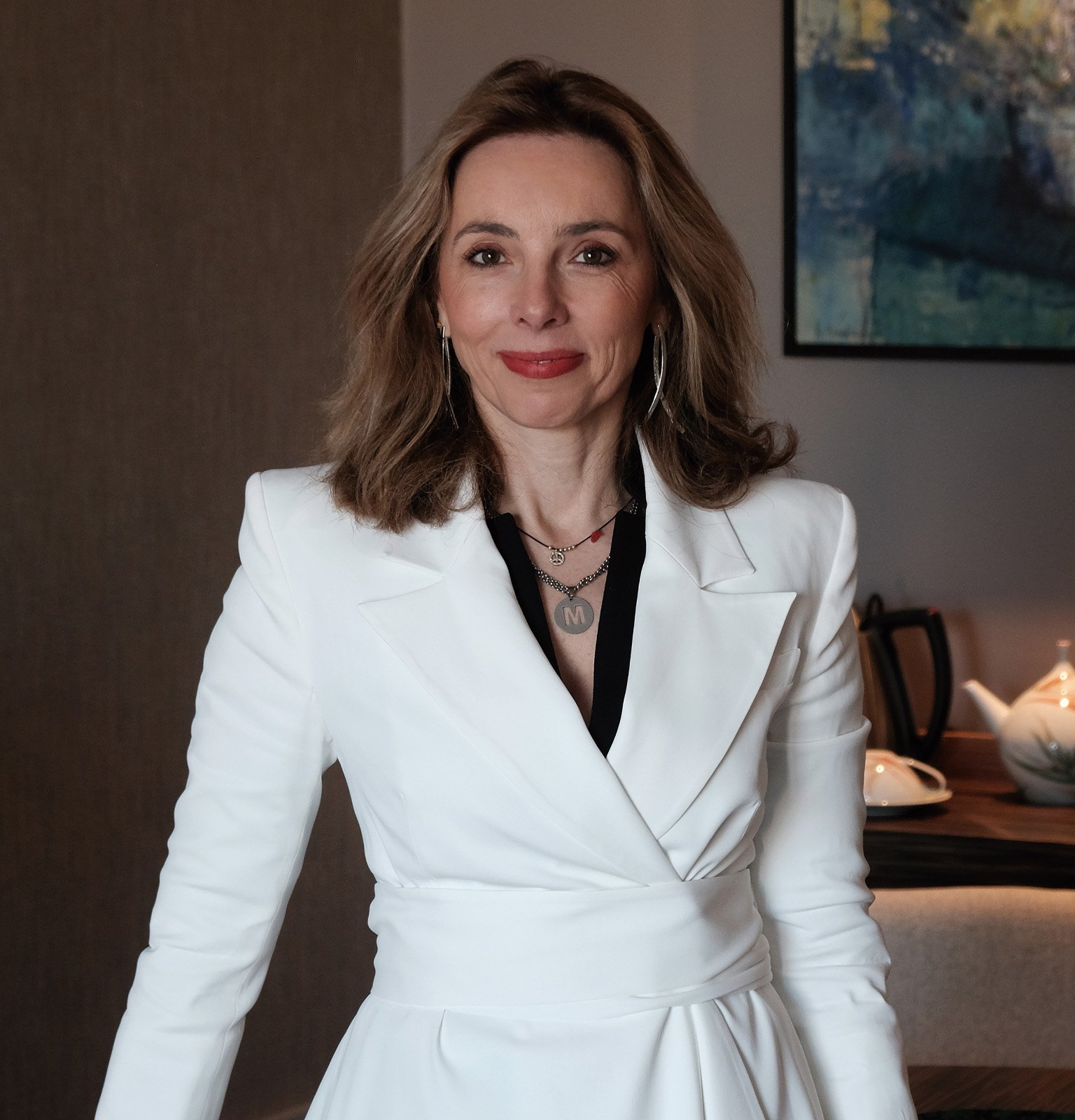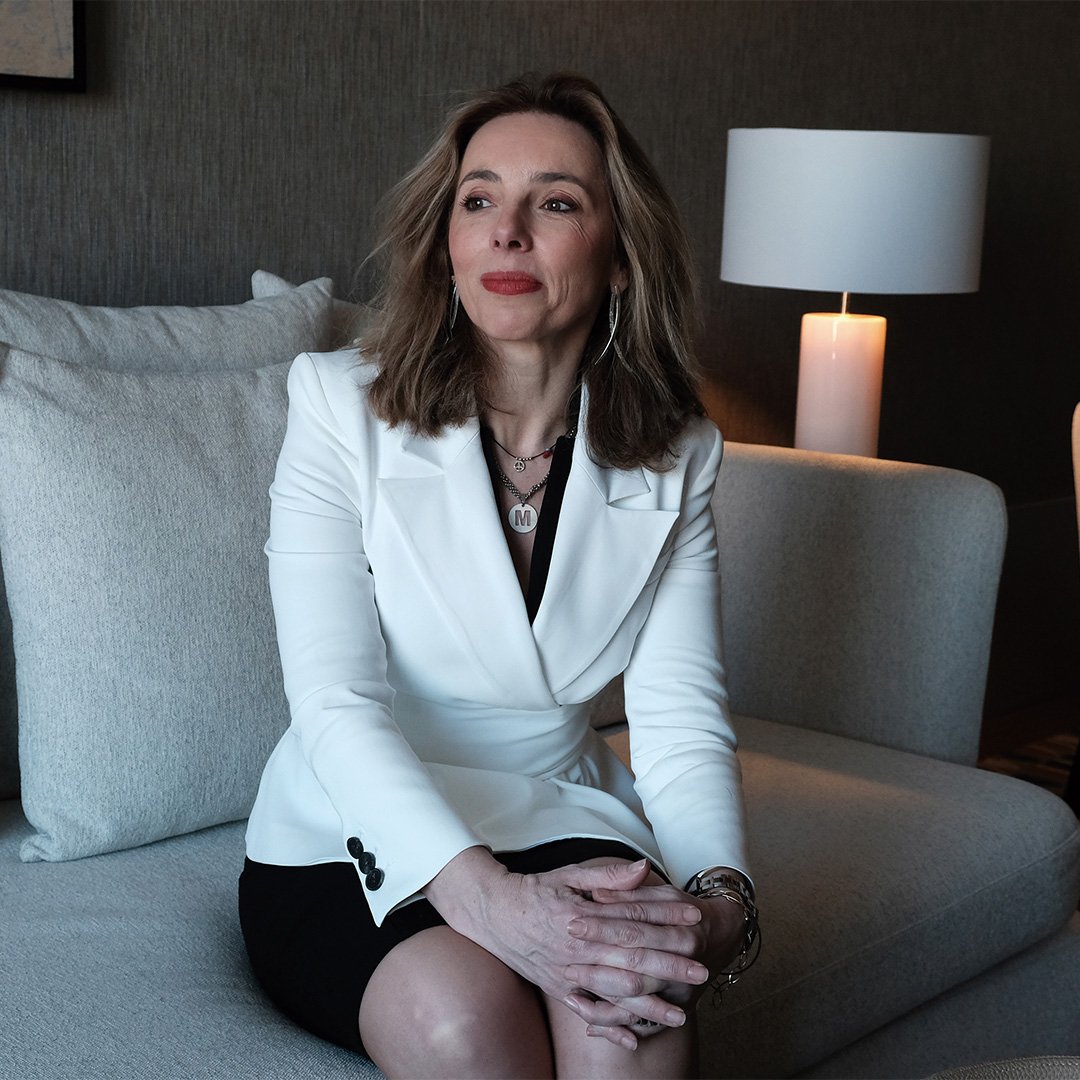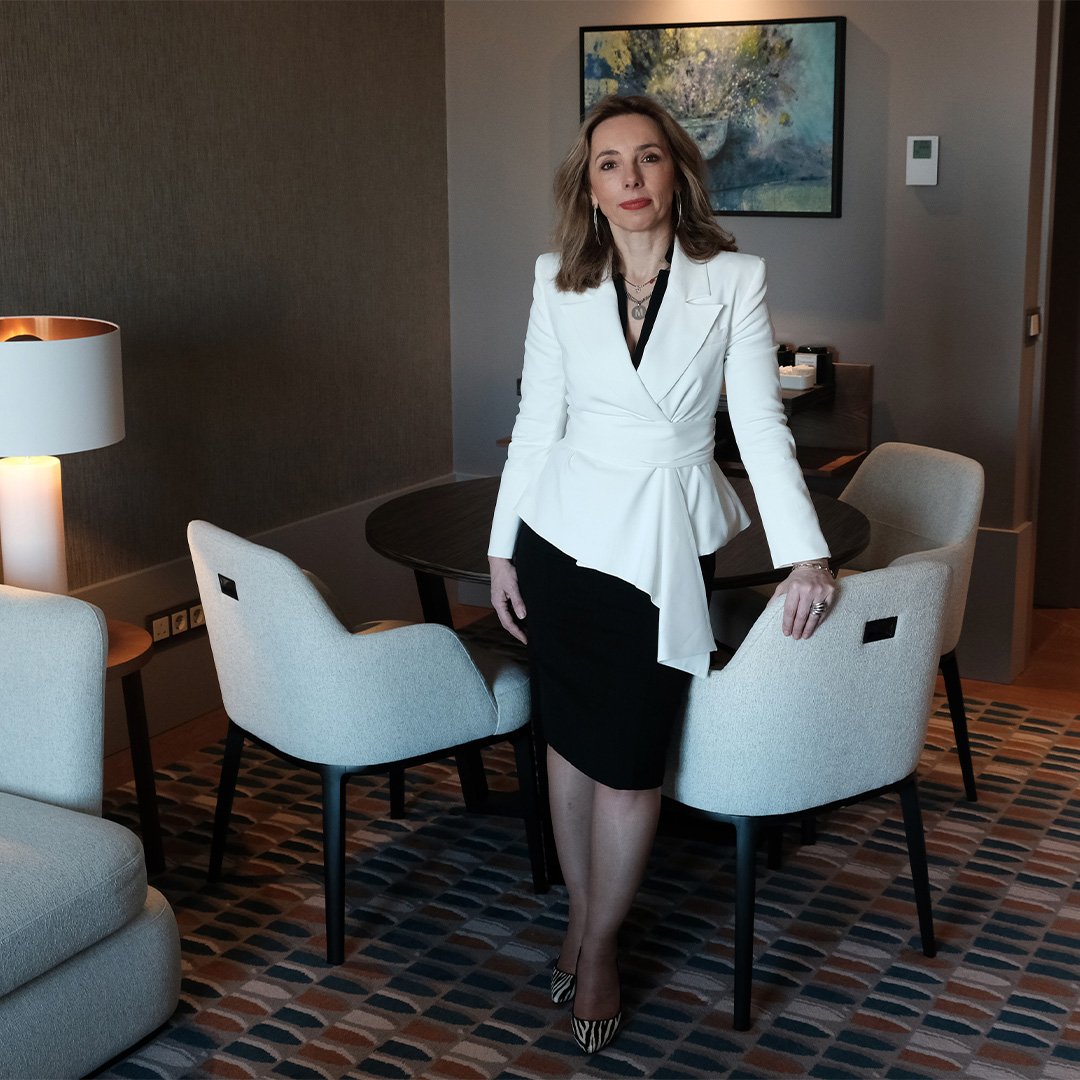You have
been a director of the United Nations Population Fund (UNFPA) for more than six
years. You live in London. How have things gone since you took on the role?
I feel
happy and fulfilled. I really enjoy what I am doing. It’s a job that is as
interesting and engaging as it is frustrating. My job is essentially to ensure
that, whatever conversations are taking place – firstly in Geneva, in
multilateral environments, in the Human Rights Council, in the World Health
Organisation – that gender equality and investment in sexual and reproductive
health are always seen as structural elements. This is very engaging, because
the work we are doing is work with a lot of impact, which is going to change
people’s lives and is going to change, above all else, the lives of women and
girls. This is one of our main focuses. And it is very frustrating because the
work is never done – every time we manage to identify a challenge that is going
well, another challenge comes along. So, it’s a job that is never finished. But
we also get a lot of joy out of seeing things happening and knowing that some
people’s lives are better because the United Nations exists and is drawing
attention to these problems.
What has
changed in your life with this move to London?
So many
things. London is a fabulous city. I changed my location and my role slightly
changed. I work for the same organisation, but now my job involves much closer
contact with the UK, Ireland, Portugal, Spain and Italy. I represent the Fund
in these countries, ensuring that governments realise the importance of
investing in the areas we work in. I share the stories of the lives in which we
have a big impact, I serve as a kind of liaison between the places where we
work and these countries, so that they realise the importance of these
investments to ensure that girls go to school, don’t get married before they
reach the age of adulthood, are freed from female genital mutilation and have
access to family planning. It has been a change of location and a change of
role, but this is the journey trodden by anyone who works for an international
organisation.
Do you
have your family with you?
Choosing
London also had a lot to do with the fact that my eldest daughter had started
university in London. It was a career choice, because after six years in Geneva
I had to go somewhere else, and London was the organisation’s choice. I applied
and stayed. This way I was able to keep both my daughters with me, the eldest
and the youngest, and combine my professional life with my family life. It’s a
case of saying: «Mum’s followed the baby out of the nest» (she laughs).
There’s a narrative, which doesn’t help anyone, which is the idea that we can
only be happy with one part of our lives. This is not true. We are happy when
we manage to reconcile as much as possible of what our career options are with
what is structural, which is our family. And being a mother is an absolutely
fundamental part of my life. So being able to be a mum in a place where I like
to work is a privilege.
«When we
say that access to sexual and reproductive health saves lives, we are thinking
of the 800 women who die every day from causes related to childbirth, pregnancy
or postpartum»
What
exactly do you do at UNFPA?
UNFPA is
a 50-year-old organisation. We are the sexual and reproductive health agency of
the United Nations. We do everything that has to do with identifying which
population groups are most vulnerable and try to remove the obstacles that
stand between these people and the achievement of their rights and their
choices. We work so that people are able to have a life of dignity, a life of
autonomy, in the very specific area of gender equality, the elimination of
violence and access to sexual and reproductive health. We work with the aim of
ensuring access to family planning and eliminating all violence against women
and girls, such as female genital mutilation, child marriages and other harmful
traditional practices. It is human rights work. 50 years ago, it began as human
numbers work, which means we were set up to provide demographic data to the states.
No state can plan its socio-economic development without knowing what is going
to happen with its population – how many people are going to be born, how many
are going to die. We provide countries with data. Today, we work whilst
acknowledging that this data represents people with rights.
Has there
been a moment when you’ve witnessed something that has marked you during your
time with the organisation?
So many.
I applied for this job. I was in Portugal, living a very happy, fulfilled life,
I was doing many things from which I derived great professional and personal
satisfaction, I always had causes, but when I applied to work at the Population
Fund, it was because I thought it was that mandate, that area of work that I
wanted, because of the stories, the lives. It was, for example, because I was
able to visit a centre for girls in Kenya and understand why that centre
exists. Knowing that those girls, when they finish school, can go there to do
their homework, have access to educational training, have access to products
that we take for granted. It was because I got to know a 16-year-old girl who
has a one-year-old son and who says she can only stay in school because there’s
this centre where she can leave her son Gabriel while she goes to class. This girl
fell pregnant during the COVID period and her mum kicked her out of the house,
but she still says: « I am 16, I have a son and I still have dreams». She wants
to be a journalist.
It was
because of hearing these moving stories. Hearing the story of that girl who
wasn’t subjected to female genital mutilation, because there is a centre that
works with communities, making them aware of the problems associated with it,
warning them that it is a violation of human rights, that it can cause mental
and physical health problems and sometimes even death. As a result of that
work, this girl was not subjected to the practice and is now one of the great
activists we have. Or by listening to the stories of the girls who were saved
from child marriage.
When
listening to all these stories, we feel encouragement for the days that do not
go so well. We change lives. I admit that I find it hard to listen to certain
discourses today that almost take for granted everything that has been achieved.
We live at a time when women’s rights have been consolidated and we have a very
progressive language, we know what needs to be done, we know what kind of
investments need to be made, and it worries me that there are no warning signs
in the face of certain discourses that proclaim that women need to stay at home
and have children. I think it is all very well for women to stay at home and
have children, if that is their choice, but I do worry that we may still have
this mentality. We want a world in which we have more options. Rights are
options. The fact that I can do something doesn’t mean that I have to do it,
but that I can if I want to.
UNFPA
addresses powerful issues. How can you ‘educate’ and raise awareness in
citizens of the world about this? And where does Portugal stand on these
issues?
This has
to be answered with a lot of data. Everything we do is backed up by scientific
evidence and the impact of projects. When we say that access to sexual and
reproductive health saves lives, we are thinking of the 800 women who die every
day from causes related to childbirth, pregnancy or postpartum. And these are
preventable causes. We have proof that investing in access to sexual and
reproductive health, with prenatal check-ups, assisted births and the
availability of medication to stop haemorrhaging, saves lives. This is one of
the ways we work – with data. We don’t have opinions; we have the results of
programmes applied in the field. We have 150 offices, 130 in countries where we
run programmes. People are very worried because it takes a long time to change
social norms, but we know that social norms are what establish belonging to
groups. The good thing is that they are constructed and can be deconstructed.
Look, for example, at what women could do 50 years ago. Today, we can do much
more. We have a freedom that has been fought for, very hard, but which is the
result of a change in social roles. Fifty years ago, women didn’t have the same
degree of autonomy and they didn’t have it because society didn’t acknowledge
it. We had to fight to be able to have a career, have a family (if we chose to)
and exercise our rights. This process of building a more independent gender
identity took time. Decades. And in many countries, it is still going on and,
in some countries, it is being threatened. It is important that we realise that
these achievements are not written in stone. I think Portugal is very advanced
in terms of legislation. I think it is one of the countries with the best laws
on sexual and reproductive health, on women’s rights. I think that, in terms of
the application of the law, there is still a way to go, a very positive way. As
an attentive observer of the situation in Portugal, not least because of the
positions I’ve held in Portugal, I think the achievements are moving in the
right direction. I am still concerned about gender-based violence and some
access to sexual and reproductive health. Even though we’re talking about a
developed country. But we cannot take anything for granted. Investment and
monitoring must be constant.
Has being
a woman ever constrained you in the professional world?
This is a
question that requires very deep reflection. Being a woman brings with it a
series of preconceived images that don’t help in building a career. Society
still has a certain expectation of what it means to be a woman. And this
expectation is not always empowering. We are expected to be professionals,
mothers, housewives and to present ourselves in a certain way in public. This
excessive pressure of expectations, combined with a series of prejudices, more
or less explicit, creates a great deal of pressure on us. I know that we can
fight these expectations, but the burden of being aware of this expectation and
the burden of the fight creates a burden on women that isn’t fair. In order to
succeed professionally, women have to work harder than men because they have a
series of prejudices to overcome. This cannot be normalised, that is to say, it
cannot be accepted. Any society has to change in order to allow men and women
to be whatever they want to be, without this excessive pressure of
expectations.
How
challenging is it to combine so many roles in one woman? How do you make time
for all of life’s tasks?
With a
very strict definition of priorities, with a very clear notion that there are
no superwomen. In these multiple roles, there is always something that isn’t
done quite so well. In my case, I have little time for myself. And anyone who
knows me knows that there will always be a moment when I say «I’m tired»,
because I’m a mum and I’m a professional, and these are the two most important
aspects of my life. This is not right, because I also have to exist as a
person. The fact is that this aspect of me is left behind. But it’s a choice.
It’s a choice for me to think that being a mum defines me, structurally, and
that my work defines me as a person, as a member of a collective. I have been
very lucky in my life, I have been so privileged with the opportunities I have
had, that I feel it is my obligation to give something back. And I give back by
working. I am always in a good mood. I always find some kind of energy. And
this is because I’m deeply grateful for the opportunities I have had. My life
has been a succession of opportunities that have been put in front of me. I
have worked for them, but I think there is an element here of being in the
right place at the right time. And having the people I like by my side. I had
the privilege of studying at a high-quality public school, of having a high-quality
national health service, which allowed me to start out in Valbom, Gondomar, in
a very modest family, and manage to have an international career. A path that lifted
me, socially. If our state hadn’t invested in the good schools I went to, if
the social lift hadn’t worked, my life wouldn’t be the same. Not only do I have
to be deeply grateful, I have to give something back.
Are you
allowed to fail as a woman?
No (she
laughs). In theory, yes. But the truth is that we set ourselves (what a
great question) almost unattainable standards of success. Not only can we not
fail, but we cannot get frustrated when we don’t achieve what we want. I would
say that I’m surrounded by family and friends who have been there for me and
who have supported me in many moments when I don’t get what I want, when I don’t
achieve my goals.
«In order
to succeed professionally, women have to work harder than men because they have
a series of prejudices to overcome»













